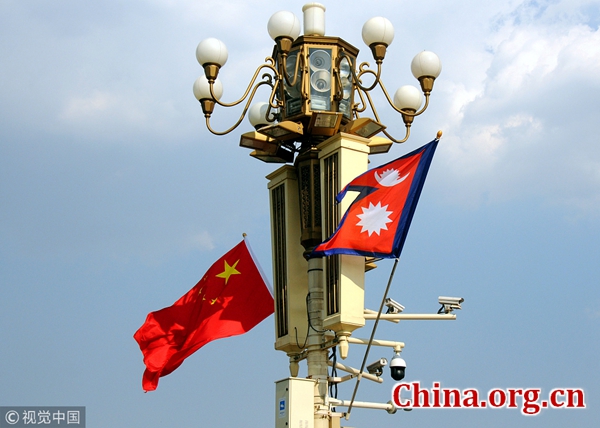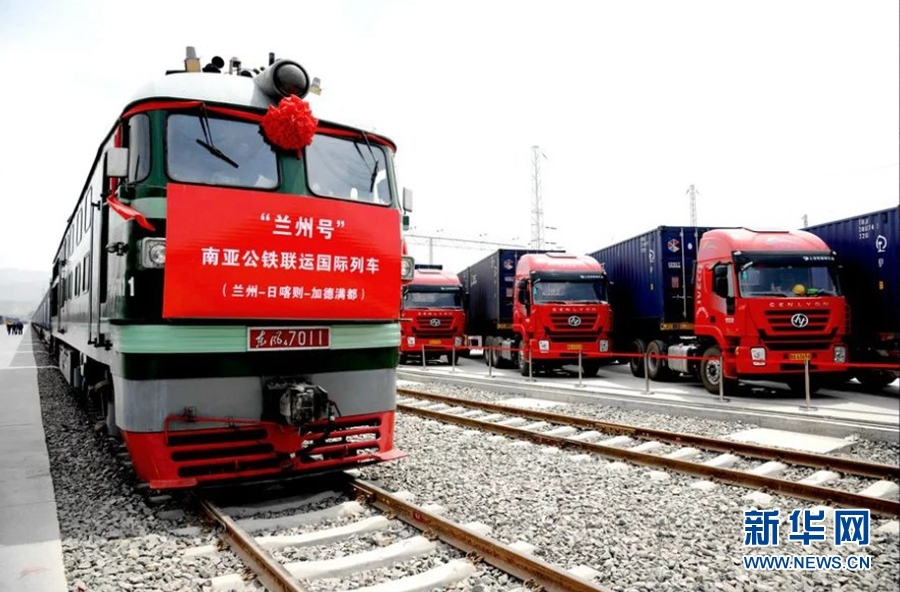Nepal eyes China for more FDI inflows
- By Mahendra Subedi
 0 Comment(s)
0 Comment(s) Print
Print E-mail China.org.cn, March 8, 2019
E-mail China.org.cn, March 8, 2019

With a new and stable government in place, Nepal is now promoting the slogan of "Prosperous Nepal, Happy Nepalis," promising a good pace of development and quality of life to its citizens.
Achieving prosperity at the current rate of national development seems impossible, but Nepal is on track to achieve some key indicators fixed by the United Nations in its Sustainable Development Goals (SDG).
In particular, it is working hard to ensure breakthroughs from the current development impasse by attracting foreign direct investment (FDI) in numerous sectors.
Likewise, there is to be strong presence of Nepal's private sector in terms of investment, and the government for facilitation and coordination. Officials have classified some lucrative sectors for investors, namely hydropower, tourism, mining, education, health and telecommunications.
To materialize this, it is organizing the Investment Summit-2019 on March 29-30 in Kathmandu.
Nepal's Ambassador to China Leela Mani Paudyal said recently: "Nepal is an excellent destination and relatively a virgin land for investment with tremendous amount of untapped natural, cultural and human resources with very high percentage of a relatively young population. It has special strategic and locational advantages, and is close to two of the world's largest markets and fastest growing economies, China and India."
Actually, Chinese investors have more leverage for investing in Nepal since the two countries have agreed to expand bilateral cooperation and develop connectivity infrastructures under the Trans-Himalayan Multi-Dimensional Connectivity Networks, and further bolster economic ties.
In 2017, China was the largest source of FDI in Nepal and second largest trading partner and the second largest source country for tourism.
With high hopes on China, the Nepal Investment Summit is expecting more support and a larger FDI inflow for socio-economic development from neighboring countries (China and India) and beyond.
It is looking for Chinese investment not merely in the form of money but also in technology transfer and shared benefits, especially eyeing China's strong scientific, engineering and technological advances in recent years.

Likewise, Nepal expects to enhance bilateral cooperation with China in connectivity, trade, tourism and other key areas through the implementation of the MoU on cooperation under the framework of the Belt and Road Initiative and other agreements.
Since there is exponential growth in China's engagement in Nepal's trade, tourism, business, education, people to people exchange, such high expectations are rational and valid.
In the recent past, the investors showed a "lukewarm" response to Nepal's corporate governance, legal framework, profit repatriation, law and order situation, and some other indicators required for profits in a business. However, now a stable government with a two-thirds majority in place is amending policies to make them investment-friendly to create an environment conducive for business by assuring 100 percent guarantee for dividend repatriation.
As part of the opening up process, the labor law has become more flexible and industrial security is convincing. Still to be tackled, however, is a dire need for physical infrastructure.
Prime Minister KP Sharma Oli and all the top brass of the ruling parties and the opposition leaders are united in sending out strong signals to potential investors and development partners that Nepal can move ahead together with its neighbors and other developed countries.
This is more significant with China's top leaders repeatedly expressing their commitment to providing every possible support to help Nepal attain its goal of "Prosperous Nepal and Happy Nepalis" in the new climate of political stability in the country.
So, this is the right time and Nepal is keen to strike while the iron is hot, persuading more Chinese business enterprises to establish their firms in Nepal to help it with job creation, import replacement and promoting exports.
Mahendra Subedi is a social researcher and commentator from Nepal currently based in Beijing.
Opinion articles reflect the views of their authors, not necessarily those of China.org.cn.
If you would like to contribute and have specific expertise, please contact us at opinion@china.org.cn.






Go to Forum >>0 Comment(s)